Why is my cat’s stomach rumbling? Common causes include normal digestion, hunger, gas, dietary changes, indigestion, or gastrointestinal illness.
Why is my cat’s stomach rumbling?
If you’ve ever thought, “Why is my cat’s stomach rumbling?”, you’re not the only one. The gurgling or growling sounds, called borborygmi, happen when gas and liquid move inside the belly.
Most of the time, this is normal. You may hear it after your cat eats or when it’s hungry and its tummy is empty. But sometimes, the noises can mean a sensitive stomach, food problems, or even worms.
The trick is knowing when it’s safe and when it’s not. Small noises are fine, but if the sounds are loud, happen frequently, or upset your cat, it’s time to see the vet.
Why Is My Cat’s Stomach Rumbling? 4 Main Reasons
| Reason | Simple Meaning | When It’s Not Okay | If the cat cries a lot or won’t eat. |
|---|---|---|---|
| Normal Digestion | Belly sounds from food and gas. | Small rumbles after eating. | If vomiting or diarrhea shows up. |
| Hunger | If the noise is loud and the cat is weak, thin, or bloated, it may indicate a health issue. | Around meal times only. | If there is tummy noise and vomiting/diarrhea. |
| Food Trouble | Worms or sickness in the stomach. | After new food. | If the noise is loud and the cat is weak, thin, or bloated. |
| Health Issue | Wrong food or a quick change can cause gas. | Never normal. | If the cat cries a lot or won’t eat. |
Normal Digestion
Sometimes, the reason for your cat’s stomach rumbling is just normal digestion.
When food, water, and air move through the stomach, the muscles squeeze and make soft gurgling sounds. These sounds are called borborygmi.
This usually happens after meals when your cat is resting and its stomach is digesting food. If your cat is happy, eating well, and active, then a little stomach noise is normal.
Just like people, cats don’t have a silent tummy. Watching how often and how loud the sounds are can help you know if everything is still healthy.
Hunger
Sometimes the reason for your cat’s stomach rumbling is simply hunger.
When the stomach is empty, it squeezes and releases, which makes growling or gurgling sounds.
Cats that eat on a set meal schedule often have louder stomach noises right before it’s time to eat. This is more common in active cats or those that eat fast and use up their energy quickly.
If your cat’s belly noises happen around their regular mealtime and they seem healthy, it’s usually just a hunger sign. Giving smaller, more frequent meals can help reduce noises and keep the tummy balanced.

Dietary Upset or Food Intolerance

Another reason for a cat’s stomach rumbling is a dietary upset.
Cats with a sensitive stomach may react to sudden food changes, low-quality food, or ingredients they can’t handle. This can cause extra gas and louder tummy sounds.
Along with the rumbling, you might notice vomiting, diarrhea, or your cat having less of an appetite. Problems such as food allergies, intolerance, or spoiled food can cause stomach upset.
To help, always change food slowly, give high-quality meals, and avoid table scraps. For some cats, adding probiotics (with a vet’s advice) can make digestion smoother and reduce the noises.
Underlying Health Issues
Sometimes a cat’s stomach rumbling is not just about digestion or diet.
If the sounds are loud, frequent, or seem to make your cat uncomfortable, it could mean a health problem.
Some common causes are intestinal parasites (worms), inflammatory bowel disease (IBD), pancreatitis, or even a swallowed object. These problems often come with other warning signs like vomiting, diarrhea, bloating, or weight loss.
If your cat has regular stomach noises along with these symptoms, they need to see a veterinarian. The vet may do blood tests, imaging, or a stool check to find the cause and give the proper treatment.
When Rumbling Is a Concern
A few gurgles in the stomach are usually normal, but sometimes they can be a warning sign.
Be cautious if stomach rumbling is accompanied by vomiting, diarrhoea, loss of appetite, low energy, or bloating.
If the noises are very loud, frequent, or make your cat look uncomfortable, it may be more than simple digestion. Watch closely for changes in your cat’s eating habits, energy levels, and stool quality.
If the rumbling continues or is accompanied by other problems, it’s best to see a veterinarian.
Trust your instincts—when you know your cat’s normal behaviour, it’s easier to notice when something is wrong.

How to Help at Home
If your cat’s stomach rumbles but they seem healthy, some simple changes at home can help.
- Give smaller, more frequent meals so the stomach doesn’t get too empty.
- Keep a regular feeding schedule and avoid sudden diet changes, which can upset a sensitive stomach.
- Choose high-quality food with easy-to-digest ingredients to support gut health.
- Use a slow feeder to stop your cat from eating too quickly and producing extra gas.
- With a vet’s advice, adding probiotics may also improve digestion and reduce gurgling sounds.
These small steps often make the tummy quieter and keep your cat feeling comfortable.
When to See the Vet
If your cat’s stomach rumbling continues even after home care, it may be time to see a veterinarian.
Get help if the noises are constant, very loud, or accompanied by warning signs such as vomiting, diarrhea, weight loss, or not eating.
If your cat shows pain or becomes very tired (lethargic), don’t ignore it.
The vet may do blood tests, imaging, or a stool exam to find the cause. Acting quickly helps treat problems like parasites or IBD before they get worse, keeping your cat safe and comfortable.
FAQs
Q1. Is it normal for my cat’s belly to rumble after eating?
Yes. Post-meal cat stomach gurgling is usually a sign of normal digestion. As food and gas move through the gastrointestinal tract, gentle rumbling sounds are expected.
Q2. Can worms make my cat’s stomach gurgle?
Absolutely. Intestinal parasites are a common reason owners ask, “Why is my cat’s stomach rumbling?” Worms can cause excess gas, bloating, and noisy digestion. A vet-prescribed deworming plan typically resolves this.
Q3. When should I worry about my cat’s stomach noises?
Seek veterinary care if the rumbling comes with vomiting, diarrhea, weight loss, bloating, or changes in appetite. Persistent or deafening noises may signal something more serious.
Q4. Can diet changes cause my cat’s stomach to rumble?
Yes. Cats with a sensitive stomach often react to abrupt diet changes or poor-quality ingredients. Transition food slowly over 7–10 days to avoid digestive upset and reduce gastric noises.
Q5. What home remedies can I try for my cat’s gurgling stomach?
Offer smaller, more frequent meals, maintain a set feeding schedule, and utilize slow feeders to prevent overeating. With vet approval, probiotics for cats can also support gut balance and reduce stomach rumbling.
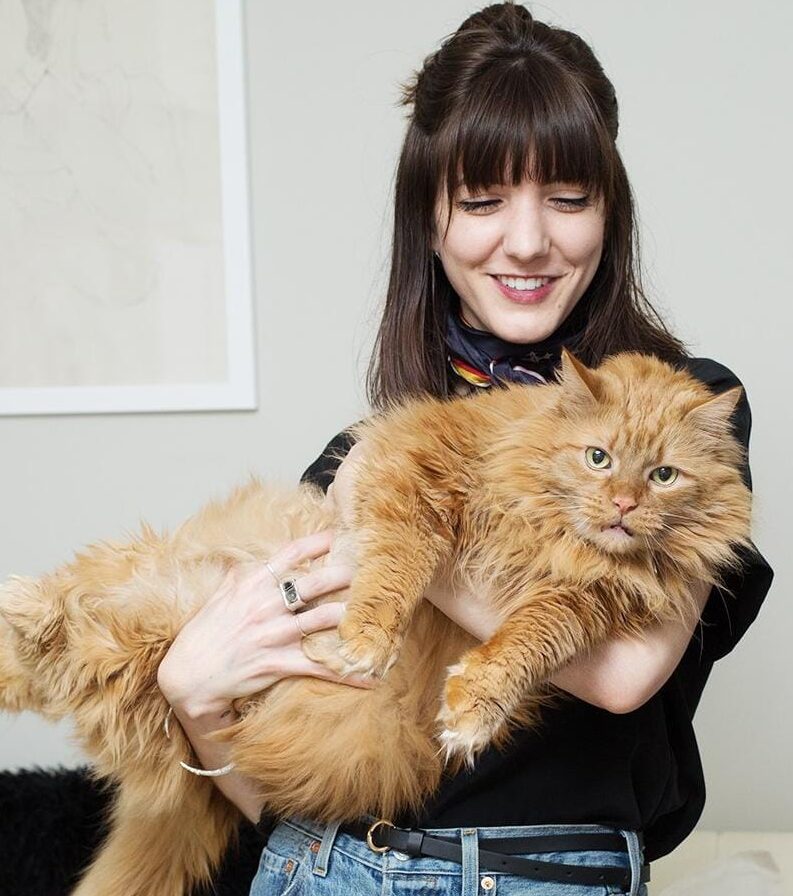
Hi, I’m Sana Sajid!I’m the voice behind CatsCare.blog, sharing my 10+ years of hands-on cat care experience. With a diploma in animal care, I offer practical tips, trusted advice, and easy-to-follow guides to help keep your cats healthy and happy.
When I’m not writing, I spend time with my own cats or exploring the latest developments in feline health. Follow CatsCare.blog for expert insights and real cat stories!

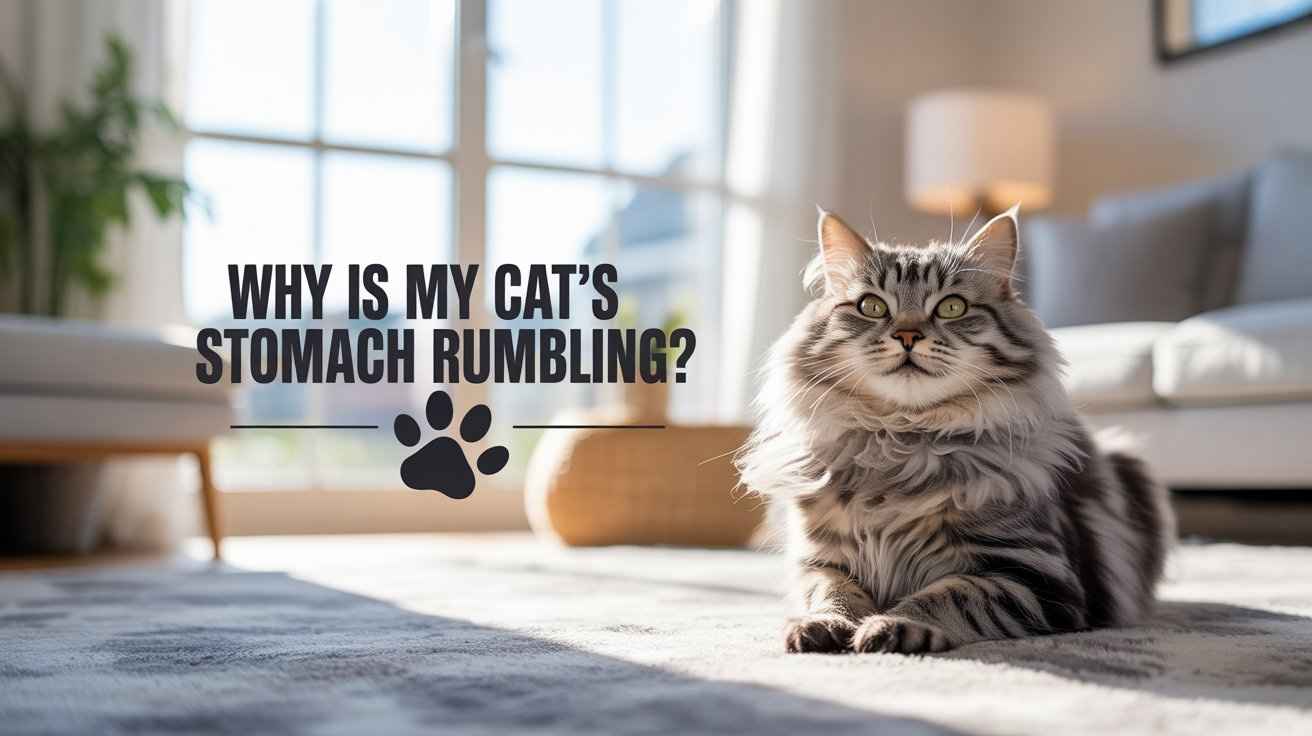
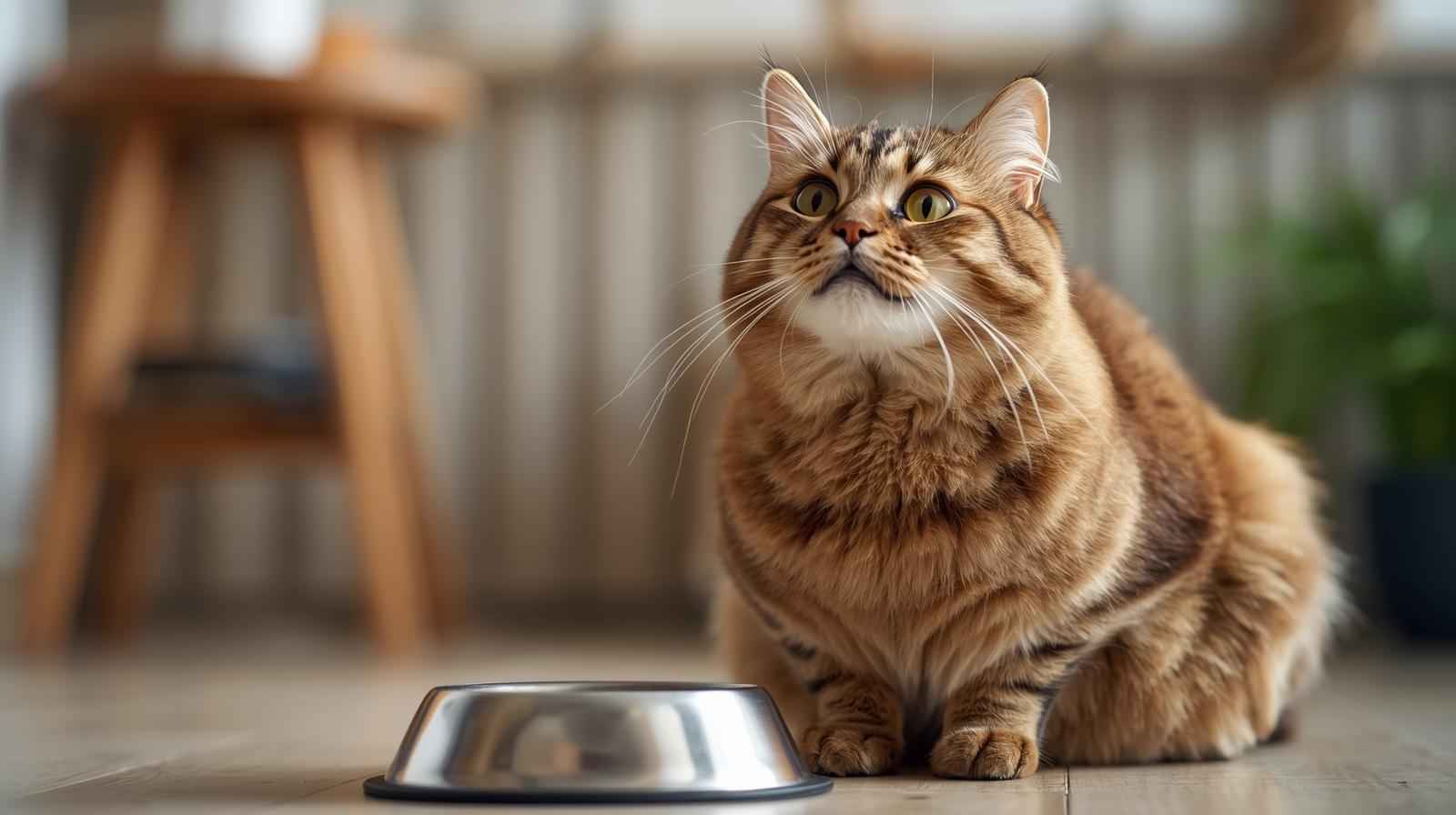
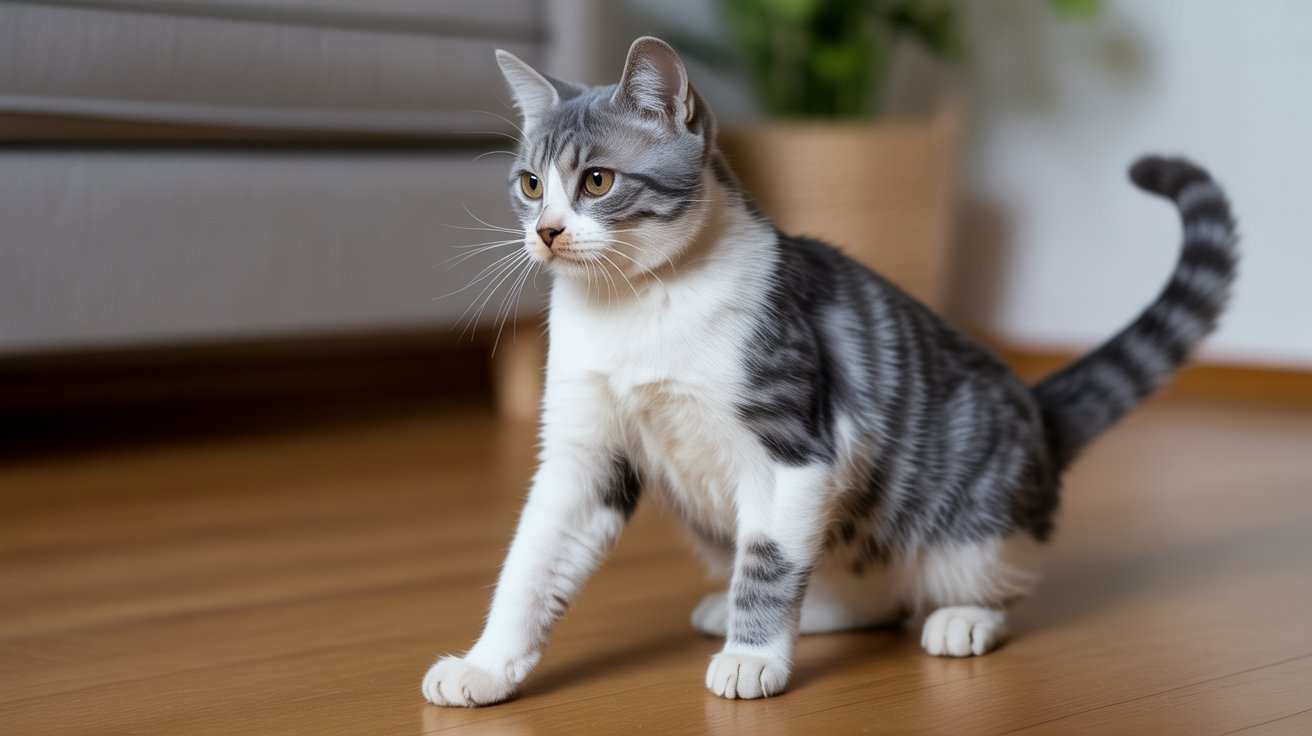
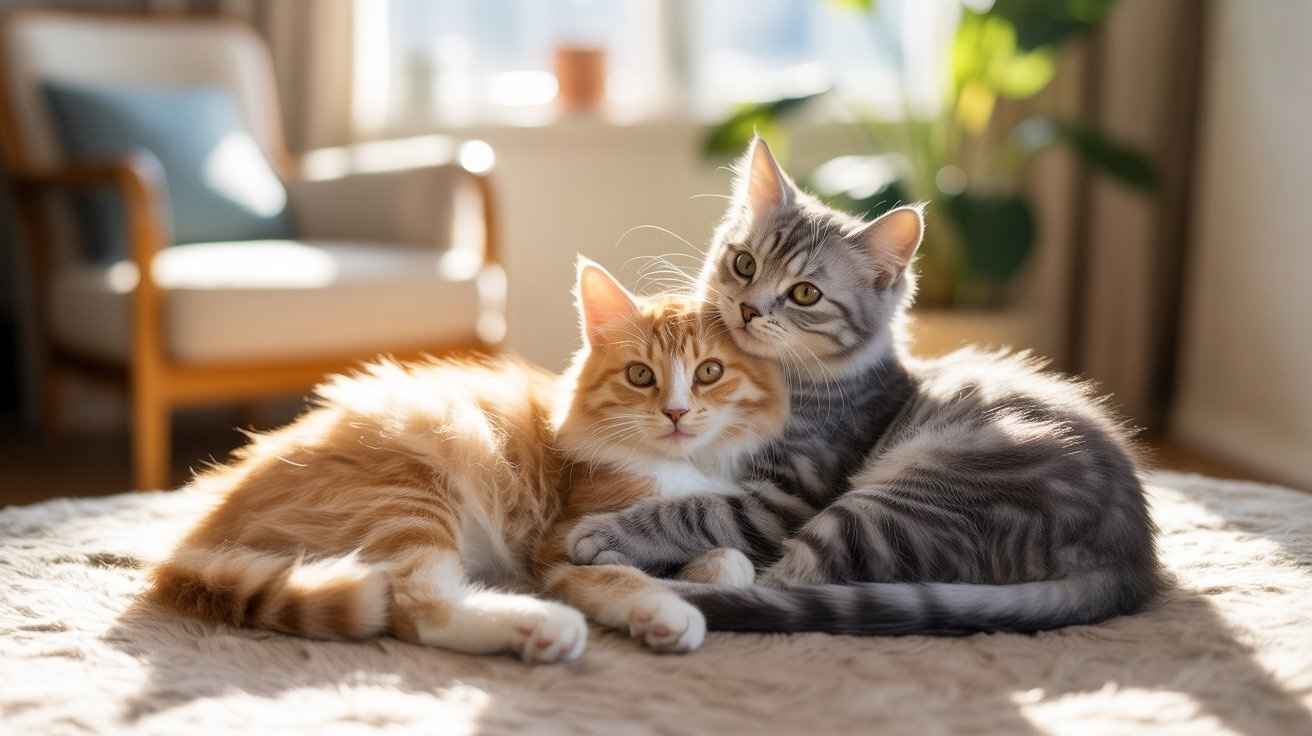
![A tabby cat with its mouth wide open, exposing its teeth and tongue, used to illustrate dental problems and answer the question [Why are my Cat’s Teeth Falling out?].](https://catscare.blog/wp-content/uploads/2025/12/Cats-Teeth-Falling-out.jpg)
2 thoughts on “Why is my cat’s stomach Rumbling? 4 Causes Explained”